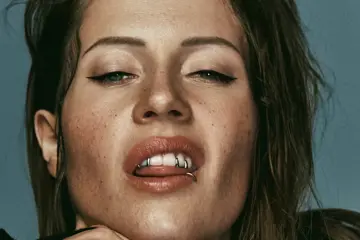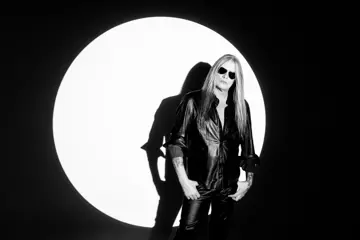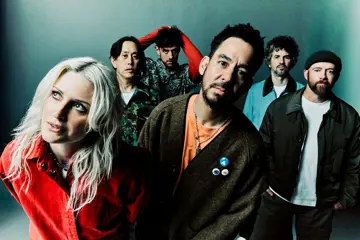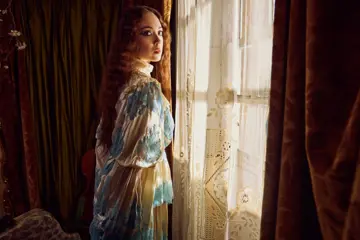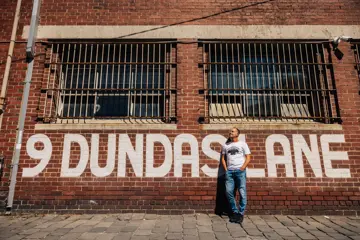 Didirri
DidirriThe small room at the back of Sooki Lounge is heating up as punters step in from the chilly Melbourne night and Tasmanian singer-songwriter Kat Edwards takes to the stage in a low purple hue. Edwards' floating vocals soar through a cover of Margaret Glaspy's Anthony so fittingly it could well have been her own song. Proving that there is a strength within simplicity she is partnered only by the strums and picks of her guitar as Stranger In My Room provides a much-needed warmth to the soul within its sultry, timeless tone.
"Thank fuck it's warm in here," exclaims Moreton frontwoman Georgia Potter to the steadily growing crowd. Potter's gritty tone rings out strong, oozing passion and soul behind her guitar. Specimen illustrates the groups' haunting tone and the slow rocking motion of the beat mixed with the warm air is like a soothing lullaby. Moreton are mysterious and moody, mixed with a fire and passion that makes you feel every word and every note.
Emerging through a red glow comes Warrnambool's Didirri, and as the first notes ring out, the crowd is silent. There's no talking or whispering, just Didirri. A cheeky cover of The Monkees' Randy Scouse Git gets the crowd giggling over its spiteful lyrical content toward The Beatles. Vocally, Didirri is beyond his years, his gritty folk tones and soulful passion encapsulated within the melody of Bird Sounds, and when the crowd hushes during a cover of Joe Pug's Bury Me Far (From My Uniform) it is breathtaking. I Can't Get Last Night Out Of My Head is announced as "the final happy song" of the night and the crowd take no delay in screaming out its chorus.
No one could be prepared for Formaldehyde, preluded by a dedication to his mother and all the strong women in the world. The song references the pain of holding onto something that brings us pain, inspired by artist Frida Kahlo. "Just to save me" crescendos into a wave of emotion and pain and there's not a dry eye in the room. The aching emotion sticks around for Jude, written about Didirri's own dealings with mental illness. Introduced in a mumble and almost incoherent, the song is authentic and raw. The crowd hauntingly sings the final line, "and I'll be here in the morning", as goosebumps and shivers run right through us.
Don't miss a beat with our FREE daily newsletter
As the final song powers through, Didirri leaves us dumbfounded by the eloquence and maturity he holds within the lyrics of someone so young, and it is surely only the beginning for the rural songwriter.


